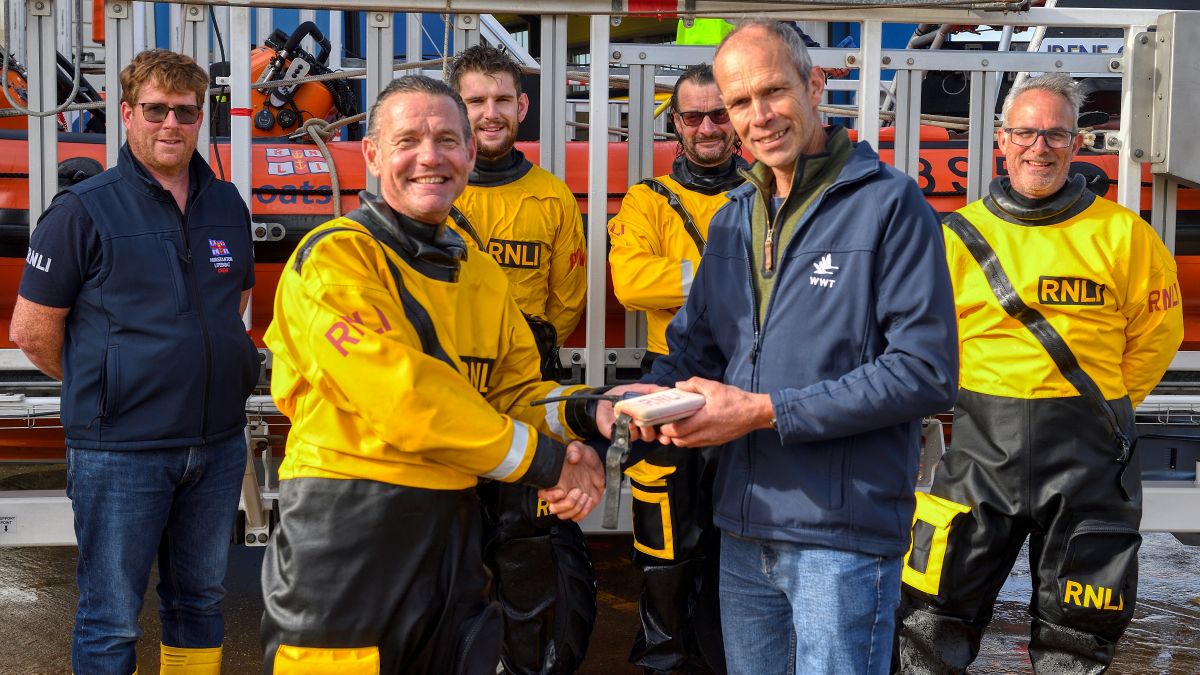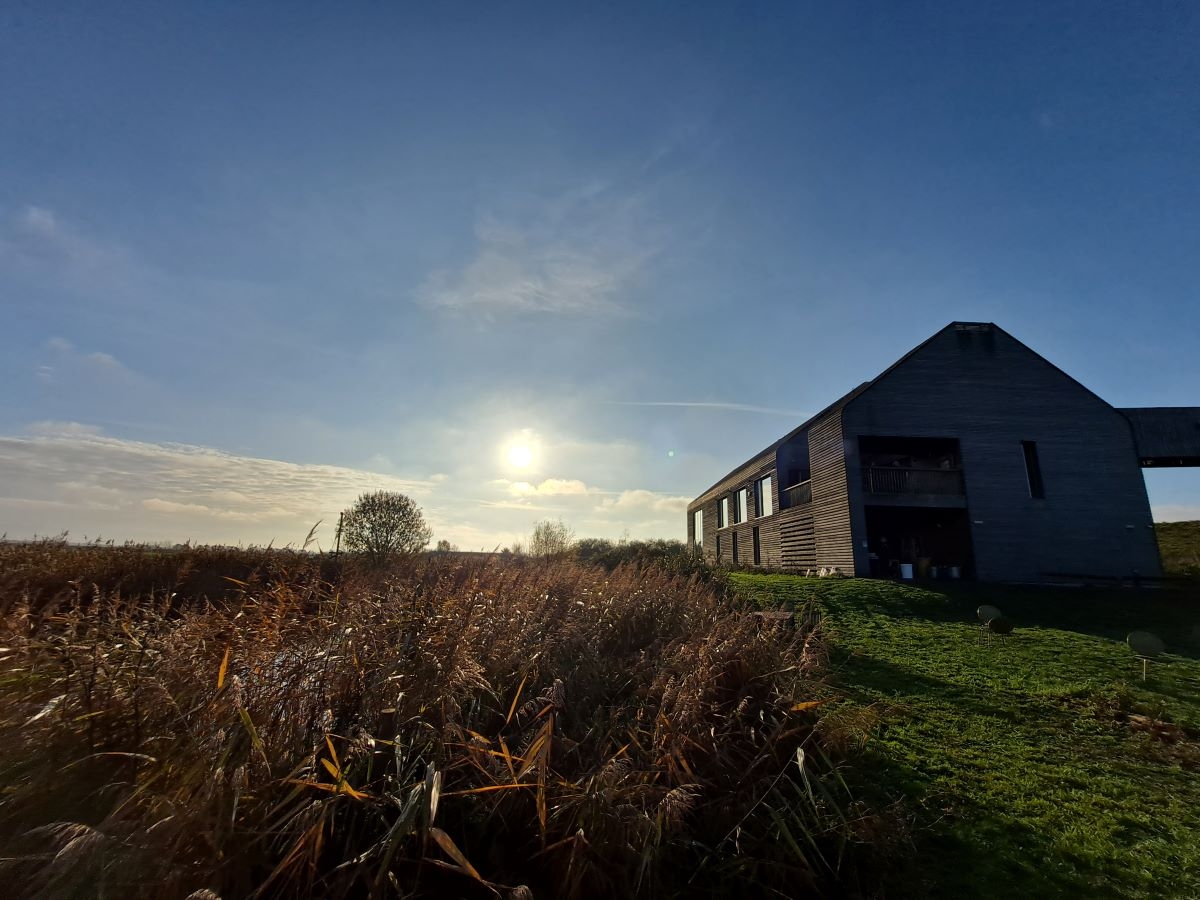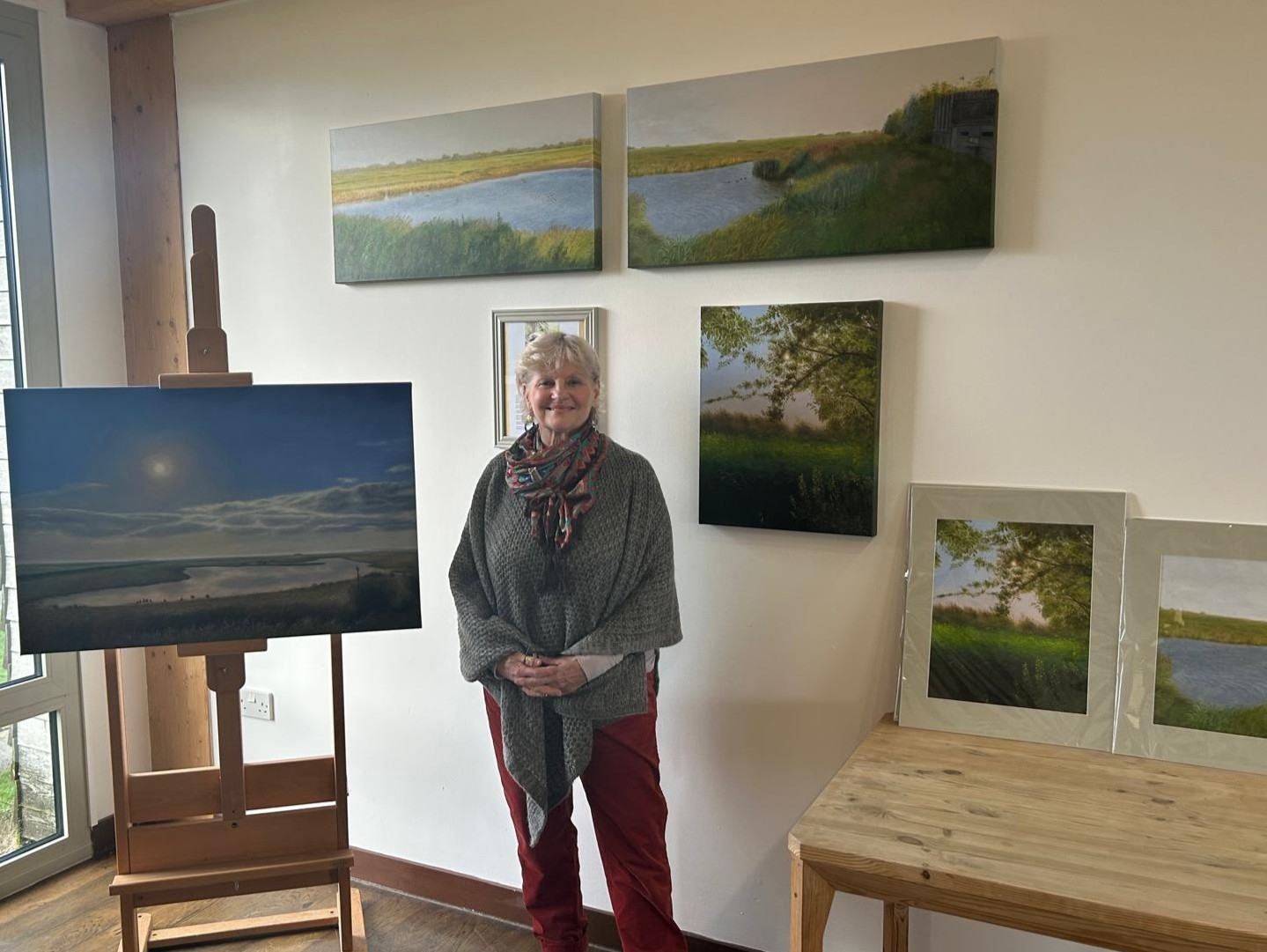Whooper swans glide in at WWT Welney!
 The first nine whooper swans glided onto the main lagoon as wardens opened the reserve on the morning of Thursday 15 September – four days earlier than last year! The sight of these arrivals and those to follow will be an intriguing development for the rare whooper swan cygnet hatched at the Wildfowl & Wetlands Trust (WWT), Welney over the summer. The cygnet of Romeo and Julietta has been coming along in leaps and bounds over the past two months and is now easily seen above the wetland grasses out on the reserve.
The first nine whooper swans glided onto the main lagoon as wardens opened the reserve on the morning of Thursday 15 September – four days earlier than last year! The sight of these arrivals and those to follow will be an intriguing development for the rare whooper swan cygnet hatched at the Wildfowl & Wetlands Trust (WWT), Welney over the summer. The cygnet of Romeo and Julietta has been coming along in leaps and bounds over the past two months and is now easily seen above the wetland grasses out on the reserve.
Every year thousands of wild whooper and Bewick’s swans spend the winter in the Fens. Up to 9,000 will use the wetlands on the Ouse washes, of which 1,000 acres can be found at WWT Welney, making it the largest swan roost in the country. This first group have made their journey to Welney successfully and can now rest on the reserve. This is so they can start to recover the energy lost by feeding on the aquatic plants around the lagoons. The group of nine adult swans appear to be a group of non-breeding individuals, but are all without leg rings so they are not known to us.
These incredible migrants will have just completed a 1,200 mile journey from their breeding grounds in Iceland. This includes a 700 mile ocean crossing over the North Atlantic. The Whooper swans can complete this section of the journey across the water in as little as 12hours and 40minutes! That is a speed of over 55 miles per hour for nearly 13 hours! The Bewick’s swans have further to fly – a journey of 2,500 miles from their breeding areas in arctic Russia. As a result, the first Bewick’s swans will not arrive in the Fens until the late of October.
Whooper swans migrate to Iceland in the spring to breed. All except our pair of love-struck swans, Romeo and his injured Julietta who could not make the journey. They stayed with us over the summer and found conditions ideal for hatching their own cygnet. The cygnet is thriving and is now almost half the size of the adult birds and should fledge in about a months time.
Staff and volunteers at WWT Welney are now looking out for the arrival of some familiar characters in the coming weeks. Including Baldur and his partner who were both ringed at Welney in 2008. This particular pair of swans has brought 19 cygnets to the Welney reserve over the past three years; 10 of which have also been ringed here. Baldur’s leg ring code is U5B and his partner can be identified by her own leg ring – U5S.
The Fens are a favourite wintering spot for Whooper and Bewick’s swans due to the combination of safe roost sites on wetlands, such as Welney, and plentiful food available in the form of waste sugar beet tops and waste potatoes left over from the harvest. The swans spend their days feeding up on these carbohydrate-rich foods in the fenland fields and sleeping on the wetlands at night in preparation for the return to their breeding grounds next spring.
‘The reserve is looking fantastic at the moment, thanks to favourable conditions over the summer and the recent arrival of hundreds of duck from their northern breeding areas,’ said reserve manager, Leigh Marshall, ‘The first swans are always very exciting and really signal the start of autumn here at Welney. We look forward to seeing numbers increasing steadily over the next month, ready for the first swan feeds in October’
The arrival of the swans signals the start of the Winter at Welney celebrations which will run throughout the stay of the swans into March 2011. The events include photography, willow and art workshops, children’s activities, and festivals. Plus even more opportunities to experience the swans close at hand with events from dawn with Swan’s Awake to dusk at Bewick’s flight in and of course the daily swan feeds. Nowhere can you get closer to these incredible migrants in comfort than from the warmth of the centrally-heated observatory at Welney. For more information on all these events see our events page or ring the centre on 01353 860711.



